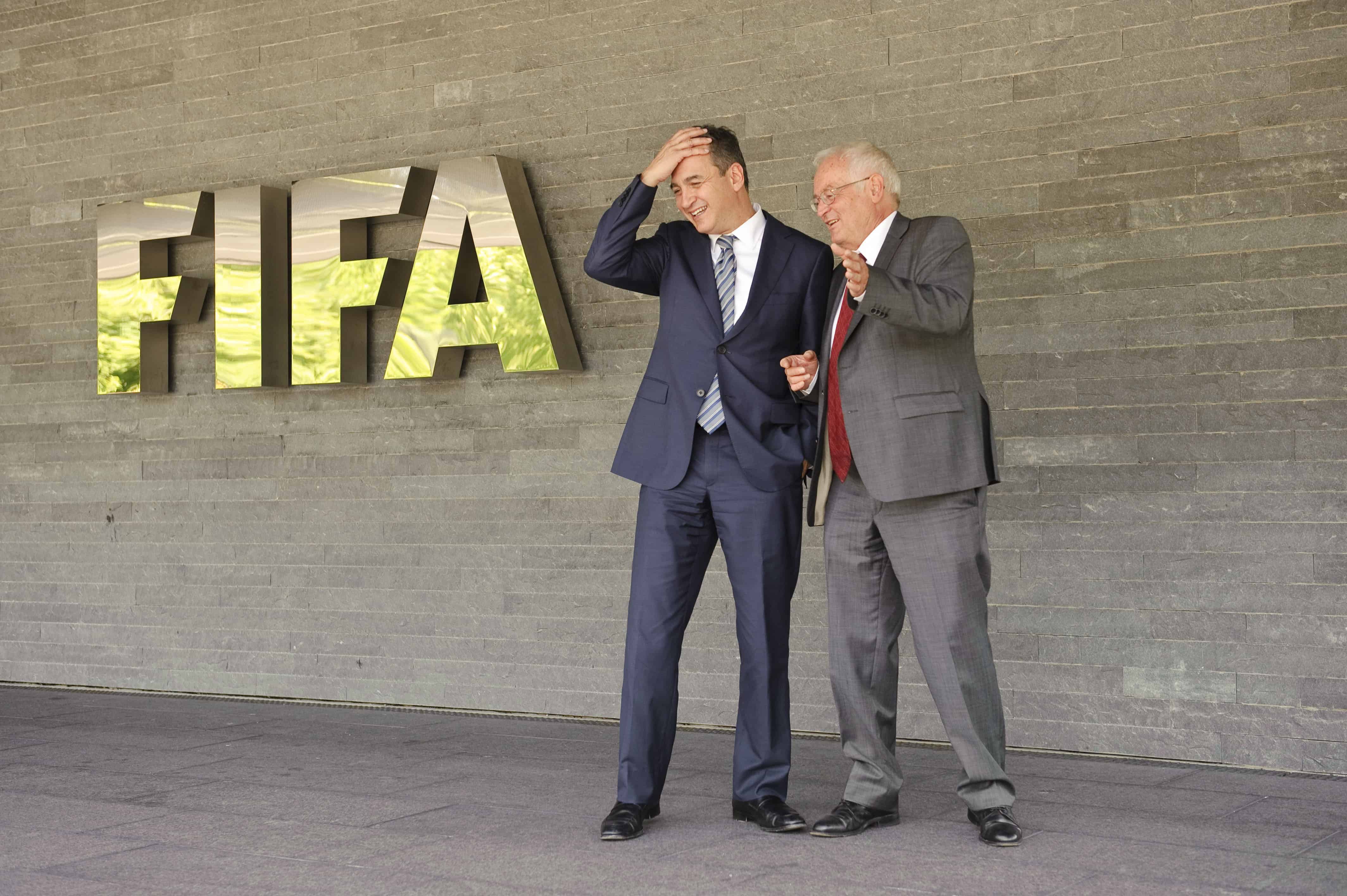The corruption probe of the World Cup bidding process may be predictably over, but the controversy surrounding FIFA’s decisions on who should host is just getting started.
As expected, the tournament will still take place in Russia in 2018 and Qatar in 2022, after the 18-month investigation found insufficient evidence of corruption. The ruling came down on Thursday from Hans-Joachim Eckert, the head judge of FIFA’s ethics committee, who released a 42-page summary of investigator Michael J. Garcia’s findings and concluded that any wrongdoing was of “very limited scope.”
Garcia, a former U.S. attorney, immediately fired back, accusing Eckert of whitewashing his original 430-page report and reporting him to FIFA’s appeals committee. “Today’s decision by the Chairman of the Adjudicatory Chamber contains numerous materially incomplete and erroneous representations of the facts and conclusions detailed in the Investigatory Chamber’s report,” Garcia said. Politicians and soccer officials from Britain also criticized Eckert’s report, which accused England and Australia of breaching ethics in their unsuccessful bids to host the 2018 World Cup.
There’s lots to take issue with here, from Eckert’s refusal to release Garcia’s full report, to the lack of cooperation from several Qatari officials, to Russia’s claim that destroying all records of the bidding process was standard operating procedure and not a cover-up. But the biggest problem remains the complete lack of independent oversight of one of the largest governing bodies in sports, tasked with investigating itself while having little motivation for transparency or the truth.
If you thought the NFL was bad, consider FIFA. Garcia reportedly recommended imposing term limits on FIFA executives, which would go a long way in cutting into the organization’s dynastic aura. But FIFA is also too big for its own good. Dozens of corruption scandals in the past decade have done little to ebb the endless profits that come from running the most popular sport in the world. FIFA made $2 billion in profit from this year’s World Cup in Brazil. And this in spite of endless protests by the local poor who would see not one cent of that money, and the “slave-like” conditions faced by the migrant workers who built the stadiums.
It will only get worse come 2022. In March, the International Trade Union Confederation estimated that 1,200 migrant workers had already died in Qatar. That number is expected to rise to 4,000 by the time the World Cup comes to Doha. Qatar has pledged numerous times to fix its problem with worker exploitation, most recently in an unenlightening interview with the Associated Press earlier this week. But report by Amnesty International released Wednesday demonstrated heavy foot-dragging by the Qatari government, stating that while some reforms have been proposed, most of them have yet to be implemented and offer solutions that are ancillary at best. “Time is running out fast,” the report states. “The legacy of the FIFA 2022 World Cup would be the hundreds of thousands of workers who were exploited to make it happen.”
The human rights situation in Russia isn’t much better, and European Union officials have suggested boycotting the 2018 World Cup as a sort of “cultural sanction” to go along with the economic penalties being levied against the country during the ongoing Ukraine crisis. This has led to trite Cold War analogies, invoking the U.S.-led boycott of the 1980 Olympic Games in Moscow.
While boycotts seem unlikely, foreign governments are remaining watchful of FIFA’s affairs. Unsatisfied with the ethics committee’s decision, the FBI will continue its own three-year investigation of FIFA. Meanwhile, a British MP has asked Britain’s Serious Fraud Office to look into the matter as well.
Supporters of Russia and Qatar will no doubt cry foul, accusing these governments of bias and sour grapes for losing their own bids. FIFA president Sepp Blatter didn’t mince words when he dismissed criticism of the Qatar World Cup as motivated by “discrimination and racism.”
But since FIFA can’t be trusted to police itself, it’s encouraging to see external institutions taking up the cause, an effort that would only be strengthened with participation from other international bodies outside the U.S. and UK. This isn’t just about East vs. West tensions or the perils of playing football in the desert heat or the opaque machinations of an organization begging for reform. This is also about the blatant disregard for the role of sports, recognized by the United Nations and much of the international community, to promote human rights as a universal ideal.
Potentially prohibiting alcohol orimplementing a strict dress code on visiting soccer fans might be dismissed as cultural preservation, if not a poor tourism strategy. Upholding anti-gay practices and exploitative labor policies can’t be treated as lightly, and shouldn’t continue to receive an international stamp of approval.
Kavitha A. Davidson writes about sports for Bloomberg View.
© 2014, Bloomberg News






